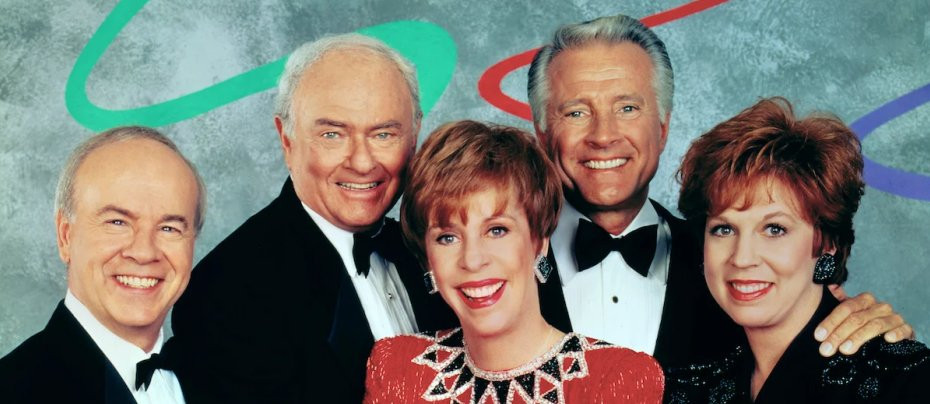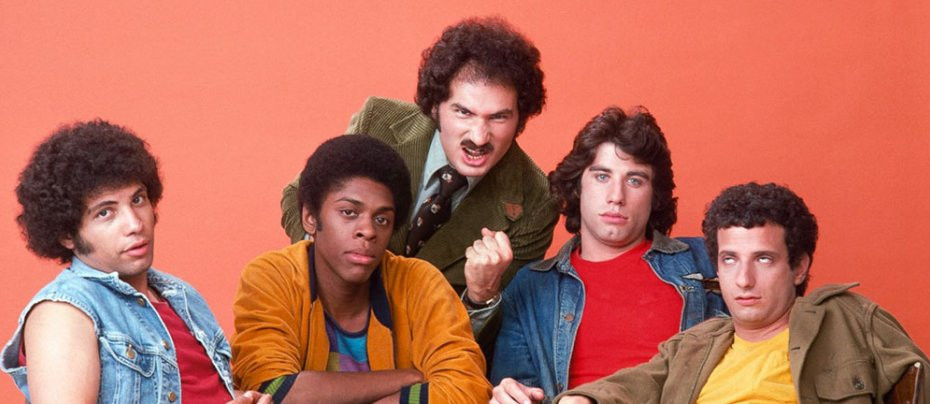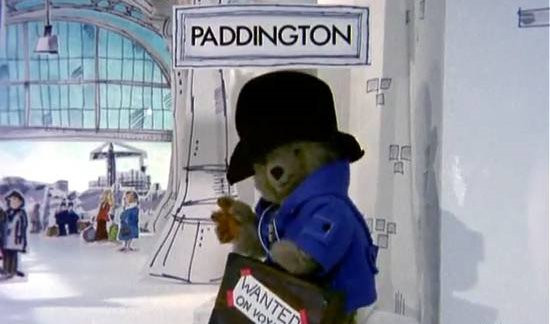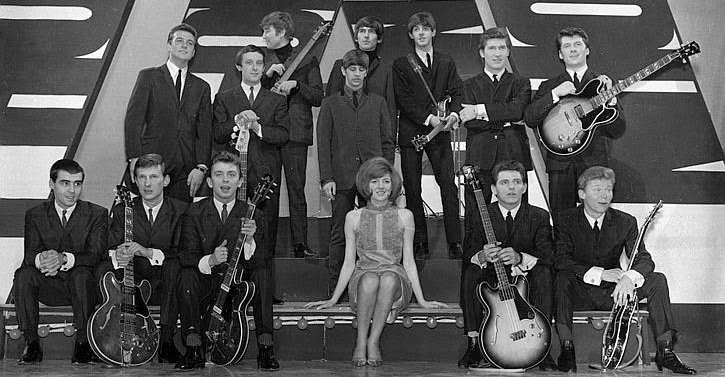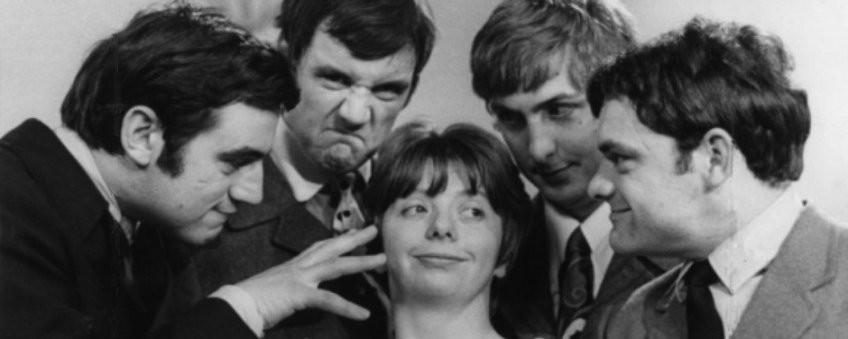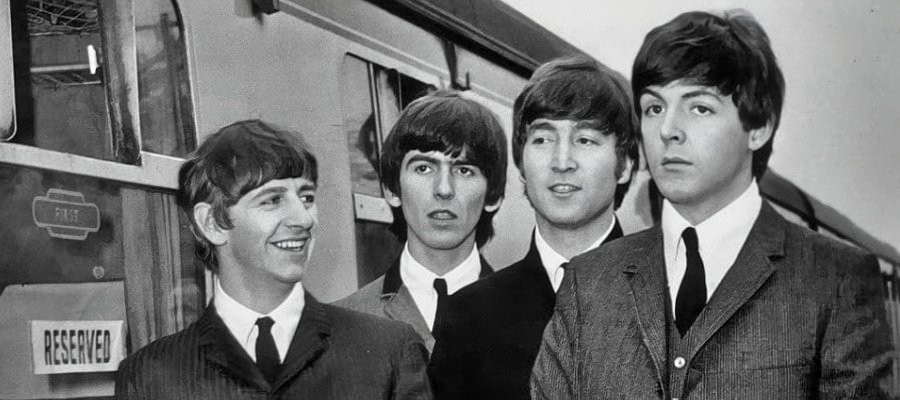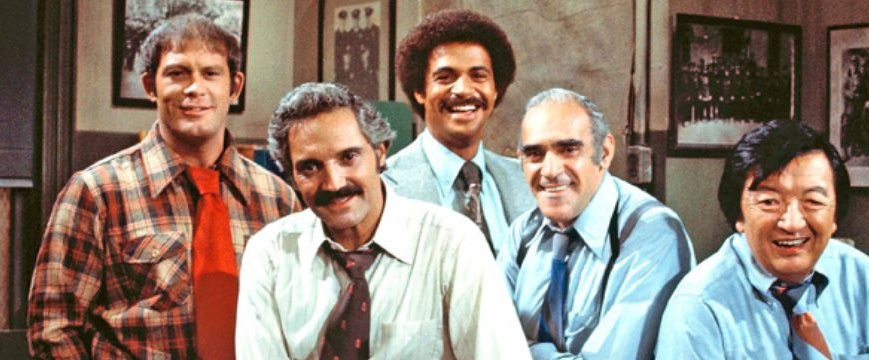
Rutland Weekend Television
1975 - United KingdomReview – Brian Slade
In 1975, the Radio Times made an unusual proclamation as it welcomed to our screens ‘The tiniest show on TV.’ The programme it was referring to was Eric Idle’s first post-Monty Python project, Rutland Weekend Television, and although almost never seen since, its success was most decidedly not tiny – even if it was primarily in the form of a spin-off movie.
Although the Python team continued working together on movies, the Monty Python’s Flying Circus television series ended for good in 1974. Eric Idle had been the most independent member of the team and so it was perhaps no great surprise that he was the first to surface with a Python-like television show soon after the Circus had left town.
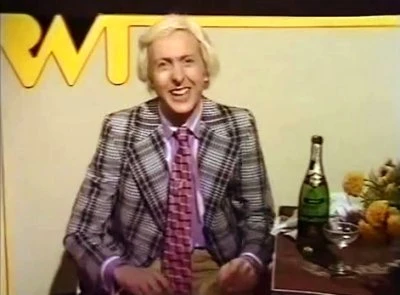
The premise was based around just what the Radio Timeshad announced – the tiniest of television companies. This was of course the 1970s, a time during which the regional television franchises had far more distinct characters than the bland generic nature of ITV programmes today. Instead of formulaic schedules and credits, back then each franchise had more independent scheduling, more locally produced programming and of course the obligatory fanfare of their own logo. The target of the lampooning of Rutland Weekend Television was of course London Weekend Television.
Rutland itself was the tiniest of counties in England and in 1974 the Conservative government of the time essentially ruled it as non-existent due to its limited size, before being sucked into Leicestershire. Idle claimed to buy the title of the programme from John Cleese for one pound, saying that, ‘I liked the idea of having a tiny television station that broadcast from a place that had just been unmade.’
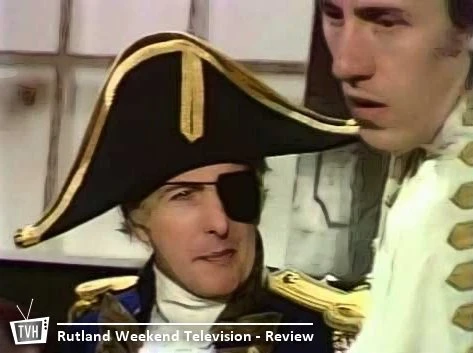
Like most regional variations of the seventies, the programme focussed around a studio host introducing local stories from the area. The sketch-format used this linking format loosely, with many elements between studio pieces unrelated to the thin thread that ran through the idea of the programme. The Idle-incarnation host varied from week to week, although the glib but seemingly uncomfortable opening host summed up the manner of these kind of programmes best. Awkward about the surroundings, desperately attempting to throw celebrity names into the stories, even though they were not involved, and trying in vain to give an element of polish to a clearly low-budget production.
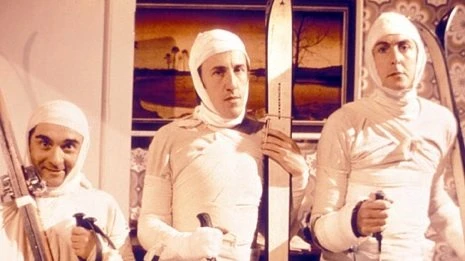
It was this low-budget element that proved the old adage of life imitating art. The budget for Rutland Weekend Television was indeed miniscule, with filming crammed next to a small fourth-floor weather programme studio at the BBC and limited to as small a timescale as possible. There were plenty of comic elements that suggested Idle’s Python influence had spilled over. Sketches were often of the bizarre nature that might have had them sit happily into an episode of Monty Python’s Flying Circus . A fine example in the first episode is that of a couple of prison guards playing chess with a prisoner readying himself for his execution, as they ask if he would mind being executed early as they have a luncheon to go to and won’t have time for a shower beforehand.

A significant element of the programme was its musical segments. Idle himself was no slouch when it came to comic songs, but as with the Python team, Idle called upon the talents of Neil Innes to provide one or two numbers per show. It was a smart move as these were often the most successful elements of the programme, with such numbers as the Accountancy Shanty and 24 Hours in Tunbridge Wells.
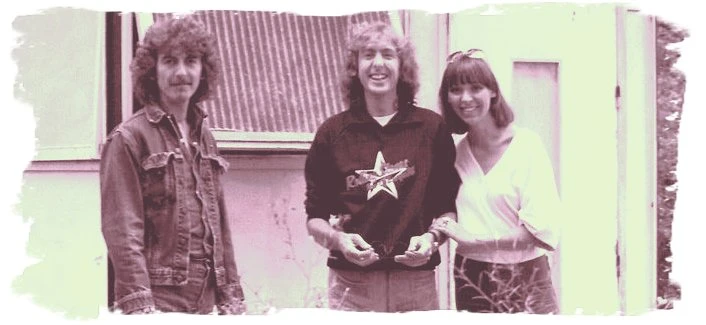
The low budget for the programme mixed perfectly into the ethos of the show, and it was successful enough to secure a Christmas Special in 1975, where Idle’s friend George Harrison would appear, seemingly determined to sing a pirate song. Harrison and Innes would be key players in the success of the spin-off, a film which spoofed the Beatles in a fly on the wall documentary ‘All You Need Is Cash’ about a local band called The Rutles.
Idle himself said he was never that sure whether the programme was funny. It had no live audience and critical reception was not especially kind. Former Python buddy Michael Palin was not averse to its charms, describing it as, ‘the first TV manifestation of the parting of the ways. Not a world-shattering show, but a very palatable half hour’s TV,’ although he did note in his diaries that Graham Chapman did not find it funny.

The programme had seemed set for a one-series run. The final episode of the first series had wrapped things up neatly with host and co-host naked bar ‘BBC’ towels, sitting in an empty studio and singing a closing ditty that concluded with the lines, ‘there’s approximately five minutes to go, or perhaps there’s only three; perhaps they’ll switch us off early to save electricity,’ at which point the studio descends into darkness.
Despite the neat conclusion, a second series came and went, but without much fanfare, with the LWT-mocking graphics replaced by a revolving cow in the manner of the BBC’s own revolving globe. A commercial release of the programme has never been forthcoming, although The Rutles spin-off television movie was a resounding success. Then in 2016, Rutland Weekend Television returned for a Christmas Special that roped in Professor Brian Cox as he attempted to explain the entire universe in the television stations preferred manner – a spectacular musical.
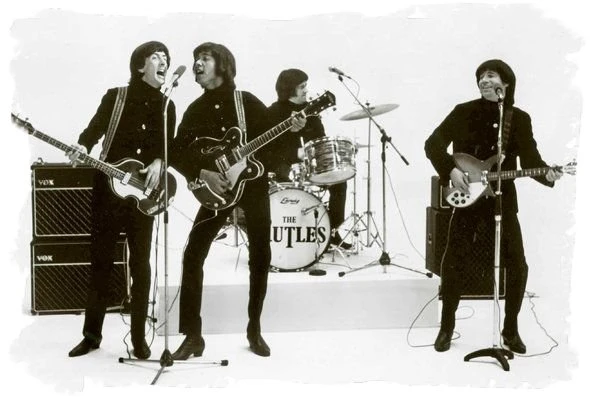
Rutland Weekend Television may not have set the world alight, and perhaps it failed to ignite not just because of its budget restrictions but also the sketch format being devoid of the other Python stars. Basil Fawlty’s arrival was never going to get the same comparisons, so distant was Fawlty Towers from anything Python related, and by the time Ripping Yarns came along there had been enough time elapse to resist comparisons for Palin and Terry Jones. Rutland Weekend Television is an unusual comedy in as much as its offspring have been more successful than it was itself, but even if for no other reason than the Rutles and the 2016 incarnation ‘The Entire Universe’, it deserves acknowledgement for its efforts.
Seen this show? How do you rate it?
Seen this show? How do you rate it?
Published on October 20th, 2020. Written by Brian Slade for Television Heaven.


